Every January, the Iowa legislature convenes. We always face surprises and suspense as legislation is introduced and moved through the legislative process. Once thing is certain - constituents play a key role in influencing the outcome. So, please contact your legislators and let them know how you are thinking about a piece of legislation or policy. In this newsletter, we have several pieces of legislation that you should discuss with your legislators - or you can e-mail them. You can also contact the legislators on committees and subcommittees working on bills you are interested in.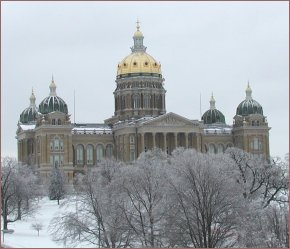
Pam Mackey Taylor
Chapter Director and Newsletter Editor
What you can do to help the environment
- Sign our action alert asking your legislators to support a factory farm moratorium
- Attend Lunch and Learn livestream every Friday at noon. See us on Facebook at "Sierra Club Iowa Chapter".
- Attend the Zoom Webinar featuring Dr. Chris Jones from the University of Iowa who will discuss "The State of Iowa's Water" -- Thursday, February 4, 2021 at 7:00pm -- Link to register
- Volunteer for the Sierra Club
- Write to your legislators about pending bills
-
In support of the bill protecting black bears in Iowa - HF22
-
In opposition to bill that would ban all-electric vehicles by 2030
-
Keeping Iowa's bottle deposit law and increasing the handling fee
In this issue of the Iowa Sierran
Iowa's legislature
-
Sierra Club supports bill protecting black bears in Iowa - HF22
-
Legislator wants to ban all-electric vehicles by 2030; dealers not complying face criminal prosecution
-
Keep Iowa's bottle deposit law and increase the handling fee
-
Update on I-Will 3/8 cent sales tax - Governor abandons I-WILL 3/8 cent sales tax this year
Climate
-
Muscatine can benefit from clean energy in shift from coal - Iowa Beyond Coal calls out clean energy savings to Muscatine Power and Water
-
Agriculture continues being the number 1 emitter of greenhouse gases in Iowa
Plus
- Contribute to the Iowa Chapter
- To see the archive of previous Iowa Chapter newsletters
- To see the White Pine Needle newsletter
- To see the Central Iowa Newsletter
Sierra Club supports bill protecting black bears in Iowa - HF22
Representative Dave Jacoby introduced a bill - HF22 - that would place the black bear on the list of game animals. Once on the list, the black bear could be given a hunting season. At first, the season would be closed since there are so few black bears in Iowa. In the future, if the number of black bears in Iowa increases to the point where a sustainable hunting season could be supported, the Department of Natural Resources could establish a hunting season. The Sierra Club supports this bill.
The next steps are for the bill to be voted on by a House subcommittee and then the House Natural Resources Committee. Members of the House Natural Resources Committee are:
|
Name/Party |
|
Phone |
|
Robert Bacon (R) |
rob.bacon@legis.iowa.gov |
515.460.8885 |
|
Tom Jeneary (R) |
Tom.Jeneary@legis.iowa.gov |
712.539.1275 |
|
Timi Brown-Powers (D) |
Timi.Brown-Powers@legis.iowa.gov |
319.404.3380 |
|
Terry Baxter (R) |
Terry.Baxter@legis.iowa.gov |
641.210.9656 |
|
Liz Bennett (D) |
Liz.Bennett@legis.iowa.gov |
515.281.3221 |
|
Steven Bradley (R) |
Steven.Bradley@legis.iowa.gov |
563.590.0845 |
|
Wes Breckenridge (D) |
Wes.Breckenridge@legis.iowa.gov |
641.521.6714 |
|
Dennis Cohoon (D) |
dennis.cohoon@legis.iowa.gov |
319.759.2168 |
|
Dean Fisher (R) |
dean.fisher@legis.iowa.gov |
641.750.3594 |
|
Thomas Gerhold (R) |
Thomas.Gerhold@legis.iowa.gov |
319.361.2950 |
|
Chris Hall (D) |
chris.hall@legis.iowa.gov |
515.281.3221 |
|
Dave Jacoby (D) |
david.jacoby@legis.iowa.gov |
319.430.9793 |
|
Kenan Judge (D) |
Kenan.Judge@legis.iowa.gov |
515.281.3221 |
|
Shannon Latham (R) |
Shannon.Latham@legis.iowa.gov |
515.281.3221 |
|
David Maxwell (R) |
dave.maxwell@legis.iowa.gov |
641.660.0792 |
|
Charlie McClintock (R) |
Charlie.McClintock@legis.iowa.gov |
515.281.3221 |
|
Norlin Mommsen (R) |
Norlin.Mommsen@legis.iowa.gov |
563.357.9826 |
|
Brent Siegrist (R) |
Brent.Siegrist@legis.iowa.gov |
402.250.5566 |
|
RasTafari Smith (D) |
Ras.Smith@legis.iowa.gov |
319.427.2101 |
|
Phyllis Thede (D) |
phyllis.thede@legis.iowa.gov |
515.281.3221 |
|
Jon Thorup (R) |
Jon.Thorup@legis.iowa.gov |
641.891.9357 |
You can also ask your representative to support the bill protecting black bears - HF22
Email, address, and phone number for House Members
Background
Black bears were abundant in Iowa at the time of settlement. However black bears were extirpated from Iowa by over-hunting in the mid 1800’s. After a long absence from Iowa, black bears have begun repopulating the state. Black bears live in Minnesota, Wisconsin, and Missouri, so it is not surprising that bears periodically make their way into Iowa. 
Black bears are not common in Iowa, but are spotted in Iowa almost every year. Northeast Iowa has habitat that favors black bears; bears have been spotted in Allamakee, Dubuque, Winneshiek, and Clayton counties. They have been spotted in other counties, mostly in eastern Iowa.
The black bear currently has no protection from hunting, so any black bears found in Iowa can legally be killed. In order to allow the black bears to continue expanding in Iowa, the black bear must be protected from hunting pressure. Initially the black bears can be given a closed season. Once the population expands, a sustainable hunting season can be established.
The DNR has a document titled “Living with Bears” that talks about how to prevent bear confrontations. Although beekeepers have expressed concerns about black bears, the beehives can be surrounded by electric fences which will keep the bears at bay. Afterbirth from livestock should be removed from fields and pastures. Carcasses of deceased livestock should not be left exposed, but instead removed, buried, or incinerated.
Watch our presentation, on Facebook, on "Protecting Iowa's Black Bears"
Photo by Fish and Wildlife Service – Steve Hillebrand
Legislator wants to ban all-electric vehicles by 2030; dealers not complying face criminal prosecution
Representative John Wills introduced a bill (HF73) that would ban the sale of all-electric vehicles in Iowa. While it is not clear whether this was intentional or just an oversight, it is clear that the intent of the bill was for all new vehicles sold in Iowa to be flex-fuel models. A flexible fuel vehicle must be able to run on E-85 gasoline.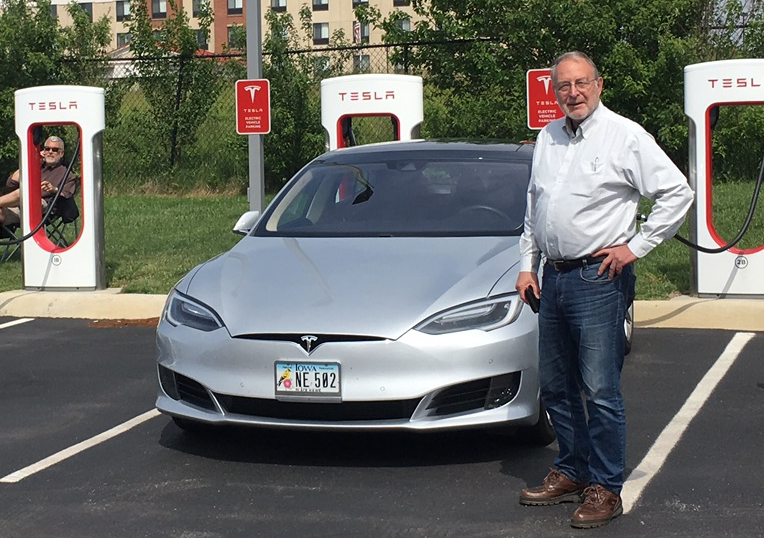
The bill requires dealers of new vehicles to begin transitioning all of the vehicles they sell to flex fuel vehicles in the following schedule:
- On January 1, 2025, at least 25% of the vehicles must be flexible fuel
- On January 1, 2027, at least 50% of the vehicles must be flexible fuel
- January 1, 2030, 100 % of the vehicles must be flex fuel.
The problem is that pluggable electric vehicles do not run on gasoline of any kind. Therefore, new car dealers will not be able to sell an electric vehicle that does not have a gasoline engine.
If a dealer sold vehicles that are not flex fuel in violation of the law, then the dealer would be facing misdemeanor criminal penalties, including:
- A fine of $250 to $1,500.
- Jail time not to exceed 30 days
- Subject to losing their motor vehicle dealer license, either revoked or suspended.
Electric vehicles are a great choice. Iowa dealers should be allowed to sell those vehicles. This bill may not even be constitutional because it interferes with the Commerce Clause of the United States Constitution.
What you can do is write the house transportation committee members and tell them that they should not pass this bill - HF73.
|
Republican |
||
|
Republican |
||
|
Republican |
||
|
Republican |
||
|
Republican |
||
|
Democrat |
||
|
Democrat |
||
|
Republican |
||
|
Democrat |
||
|
Democrat |
||
|
Democrat |
||
|
Republican |
||
|
Republican |
||
|
Republican |
||
|
Democrat |
||
|
Republican |
||
|
Democrat |
||
|
Republican |
||
|
Democrat |
||
|
Republican |
||
|
Republican |
Keep Iowa's bottle deposit law and increase the handling fee
Ask your state representative and senator to oppose any efforts to dismantle the bottle deposit law, ask them to increase the handling fee, and ask that they expand the bill to cover additional containers (juice, bottled water, sports drinks).
Since its inception in 1978, Iowans have benefitted from the bottle deposit law. It should not be dismantled now. We are all familiar with paying a nickel deposit on plastic, glass, and metal pop and alcohol containers which is returned to us when we bring the empty bottles back to the store.
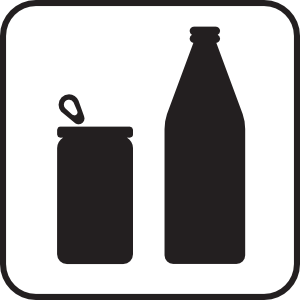
The Bottle Deposit law is Popular.
In fact, Iowans support expanding the bottle deposit law to include other beverage containers. Iowans are universally supportive of Iowa’s bottle deposit law. A January, 2018, poll of Iowans shows that:
-
-
- 53% of Republicans favor keeping the bottle bill as it is or expanding it
- 60 % of Democrats favor keeping the bottle bill as it is or expanding it
- 61 % of independents favor keeping the bottle bill as it is or expanding it
- 61 % of Iowans over the age of 65 favor keeping the bottle bill as it is or expanding it
-
The bottle deposit law diverts containers from the landfill and into recycled products.
Further by encouraging recycling, less litter is strewn across the state.
-
-
-
According to the Iowa Department of Natural Resources, 71% percent of the beverage containers are recycled each year.
-
Redeeming plastic, glass, and metal pop and alcohol containers provides an incentive to keep discarded containers out of roadside ditches and public areas.
-
Returning beverage containers reduces the amount of waste that must be buried in landfills.
-
Using the returned containers to create new products uses less energy than using virgin raw materials.
-
The bottle deposit law even provides spending money to those who collect discarded bottles and cans.
-
The bottle deposit law provides jobs to 870 Iowans who are involved in the recovery process.
-
-
The bottle deposit law has been a success!
Ask your state representative and senator to oppose any efforts to dismantle the bottle deposit law, ask them to increase the handling fee, and ask that they expand the bill to cover additional containers (juice, bottled water, sports drinks).
Update on I-Will 3/8 cent sales tax
Governor abandons I-WILL 3/8 cent sales tax this year
Last year Governor Kim Reynolds advocated for the Invest in Iowa Act, which was a misguided attempt to implement the 3/8 cent sales tax that would fund natural resources and water quality initiatives. This year, the governor decided not to pursue the effort, but indicated that it might be brought forward next year. You may know of this legislation as I-Will.
The Act had several policies and lots of moving parts. The bill was designed to implement the constitutional amendment and concurrent legislation to establish a Natural Resources and Outdoor Recreation Trust Fund, financed by an increase in Iowa’s sales tax. However, the Sierra Club had numerous concerns about the specifics of the Act and believed that it needed to be redesigned, including:
- The bill, as it was introduced, would have provided less than 1/8 of cent of new money, with the rest of the funds covering existing programs operated by the Department of Natural Resources (DNR). The money used to fund existing programs would have been used to fund income tax reductions, directed at high end earners.
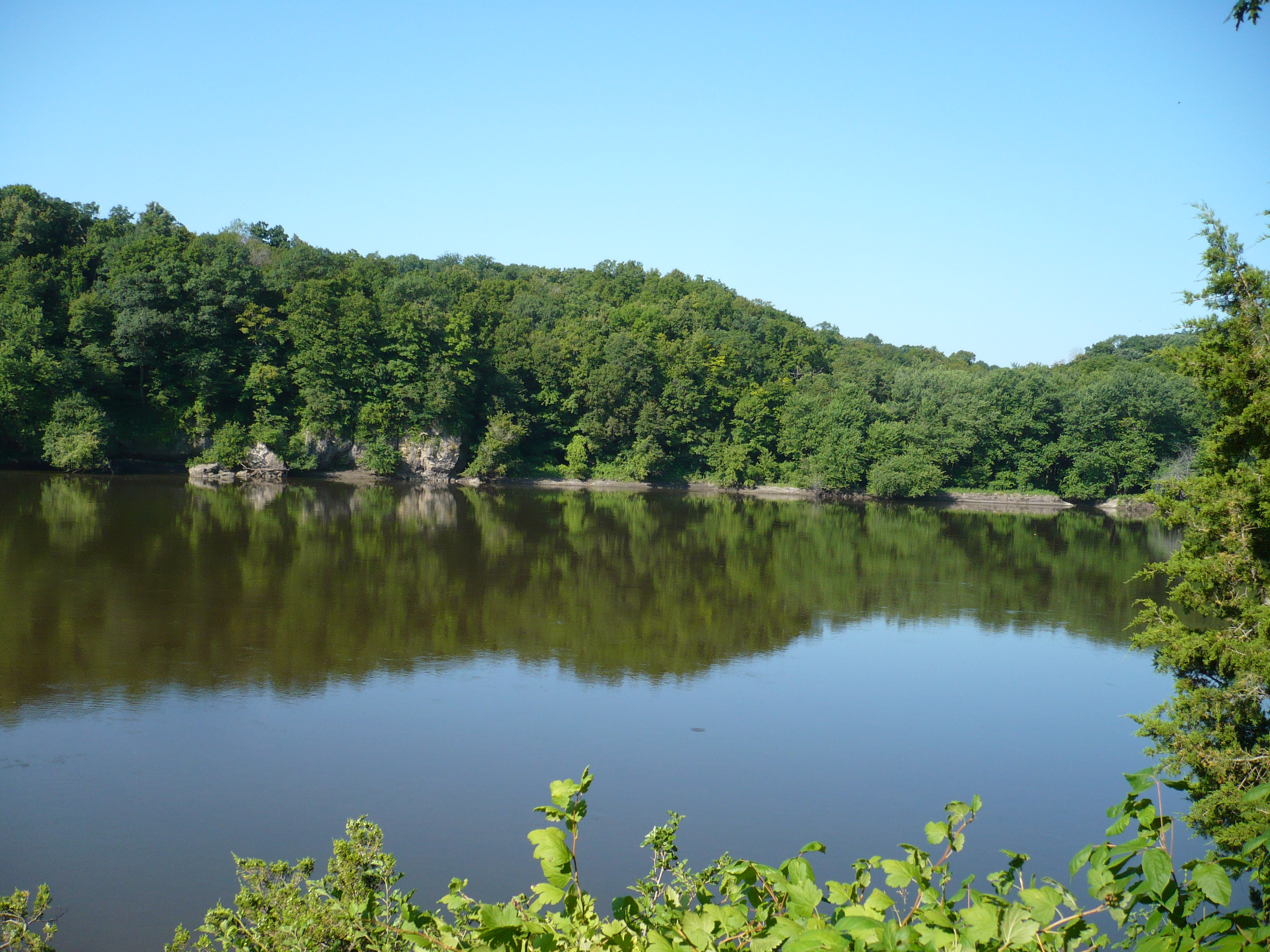
- The bill altered the original funding formula that was established before the constitutional amendment was approved by the voters. The Governor's plan would have significantly reduced the portion of the fund going to natural resources, REAP, local conservation partnerships, and recreational trails. These reductions in funding are clearly at odds with the very name of the trust fund - Natural Resources and Outdoor Recreation Trust Fund – and what the voters approved.
- The bills placed the project selection in the hands of the Iowa Economic Development Authority (IEDA) instead of the departments administering the money. The DNR is the agency with the authority and expertise to oversee natural resources and water quality.
- The bills place priority on projects that implement the Nutrient Reduction Strategy but have no way to measure the success of the projects, no accountability to the taxpayer that the projects and methods work, and set no criteria for nutrients in Iowa’s rivers, streams, and lakes. Further, nutrients are not the only pollution affecting Iowa’s water bodies, yet those other pollutants were not given funding.
Join us for interesting and informative webinars
February Webinars
The Iowa Chapter has scheduled some interesting and informative webinars for February. We hope you can join us. These will be hosted on Zoom or livestreamed on Facebook.
Every Friday at noon, we will do a Lunch and Learn livestream. See us on Facebook at "Sierra Club Iowa Chapter". These will be recorded so you can watch them anytime. Topics will be selected based on what is happening during the week and will be announced the day before the livestream.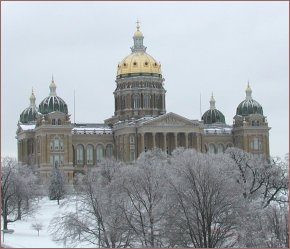
Thursday, February 4, 2021 at 7:00pm -- Dr. Chris Jones from the University of Iowa will discuss "The State of Iowa's Water". We will have more information about this webinar in the January newsletter. Link to register Dr. Chris Jones works in the Hydroscience and Engineering Department at the University of Iowa. Chris has performed research related to nutrient transport in water. He has a popular blog that discusses water quality issues.
In case you missed our past webinars and lunch and learn sessions, you can still see them.
Muscatine Can Benefit From Clean Energy in Shift From Coal
Iowa Beyond Coal calls out clean energy savings to Muscatine Power and Water
Submitted by Katie Rock, Campaign Representative for Sierra Club's Beyond Coal Campaign
Muscatine Power & Water (MPW) made public over the summer its initial plans to phase out some of its coal power, replacing three of the four coal burning units of the 270 MW plant with 30 MW of solar. MPW is currently weighing whether to replace the remaining coal burning unit 9 with a new combined heat and power (CHP) gas plant, based on a power supply study that has not been available to the public.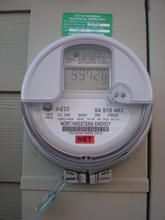
I shared public comments with the MPW board first over the summer. At MPW’s December board meeting, I followed up by sharing an analysis by Sierra Club that shows investing in a clean energy portfolio would be cheaper than building a new gas plant. (Read the full analysis here.)
Sierra Club applauds the MPW board recognizing that it is in customers’ interests to transition away from coal. Replacing coal power with cleaner alternatives can save money and immediately improve public health. However, growing evidence shows gas increasingly cannot compete economically with clean energy technology.
The Sierra Club has repeatedly asked for MPW’s power supply study to be made public. MPW customers deserve this transparency in your decision making process. Because the study remains unavailable, we made some assumptions about the size and cost of a potential gas plant. We would like to make a true apples-to-apples comparison between our analysis and the proposed study. So we will continue to push for transparency by asking for its public release, and will refine this analysis if that happens.
We used a formula based on an algorithm by the Rocky Mountain Institute to compare the cost of two different clean energy portfolios to a potential combined cycle gas plant (which is typically what a CHP plant is minus the sale of excess heat). We assumed a plant size of 160 MW for an estimated total cost of $283 million. Both clean energy alternatives are cheaper than building a gas plant.
Additionally, if the gas plant was built in 2028, the model shows that the plant would become a stranded asset within 5-10 years. This means that within the first five to ten years of the plant’s operating life, the cost of building and operating a mix of clean energy would be cheaper than the costs of just running the new gas plant. A new combined heat and power plant would leave ratepayers paying off the plant’s debt long after it does not make sense to keep running it.
The first clean energy portfolio consists of a mix of wind, solar and battery storage. It would cost $8 per MWh less compared to 160 MW gas plant, which amounts to $41 million less in total costs.
The second portfolio combines wind, solar and battery storage with investments in demand side technologies like energy efficiency and smart meters, and would cost nearly $19 per MWh less for a total cost savings of $97 million.
Costs for wind, solar and storage have declined dramatically in the last decade, and are expected to continue to decline through 2028. Both portfolios offer a better deal for customers.
Beyond the cost savings, we believe a new gas plant is a risky deal for customers. If an industrial customer is in need of fairly continuous steam or heat, then its need may dictate the overall operating schedule of the power plant.
This may create a situation where the power generator is running uneconomically. While the industrial steam customer may benefit, Muscatine’s other ratepayers would likely face high losses and be heavily cross-subsidizing the steam customer.
For this reason, we advise against building a CHP gas unit in 2028 in a high-renewables, low-power price market.
MPW is expected to make a decision on whether to move ahead with plans for a proposed gas plant to replace unit 9 by mid-2021.
Agriculture continues being the number 1 emitter of greenhouse gases in Iowa
Iowa’s Greenhouse Gas Emissions report for 2019 was recently released by the Iowa Department of Natural Resources. Compared to 2018, the number of greenhouse gas emissions declined from 123.7 to 121.25 million metric tons of carbon dioxide equivalents.
The sector emitting the most greenhouse gases is agriculture.
|
Sector |
2020 |
|
Electricity, power plants |
19% |
|
Transportation |
15% |
|
Residential, commercial, industrial fossil fuel use |
28% |
|
Natural Gas Transmission and Distribution |
1% |
|
Industrial Process |
6% |
|
Waste |
2% |
|
Agriculture |
29% |
Agriculture greenhouse gas emissions include
- Enteric fermentation emissions from the digestive systems of ruminant animals
- Agricultural soils emissions that are from manure, runoff, plant fertilizers, plant residues, and cultivation of highly organic soils
- GHG emissions from fossil-fuel fired tractors and other agricultural equipment are included in the transportation sector.
The agriculture emissions declined 2.02% between 2018 and 2019.
The greenhouse gases tracked in the inventory are carbon dioxide (CO2), methane (CH4), nitrous oxide (N2O), perfluorocarbons (PFC), hydrofluorocarbons (HFC),and sulfur hexafluoride (SF6).
See the report at www.iowadnr.gov/Environmental-Protection/Air-Quality/Greenhouse-Gas-Emissions
Volunteer for the Iowa Chapter
Almost everything we do is done by volunteers like you. If you would like to volunteer for the Iowa Chapter, please let us know by sending an E-mail to Iowa.chapter@sierraclub.org. Or sign up by using the on-line form. There are many opportunities for you to make a difference:
-
making phone calls
-
developing graphics for banners and flyers
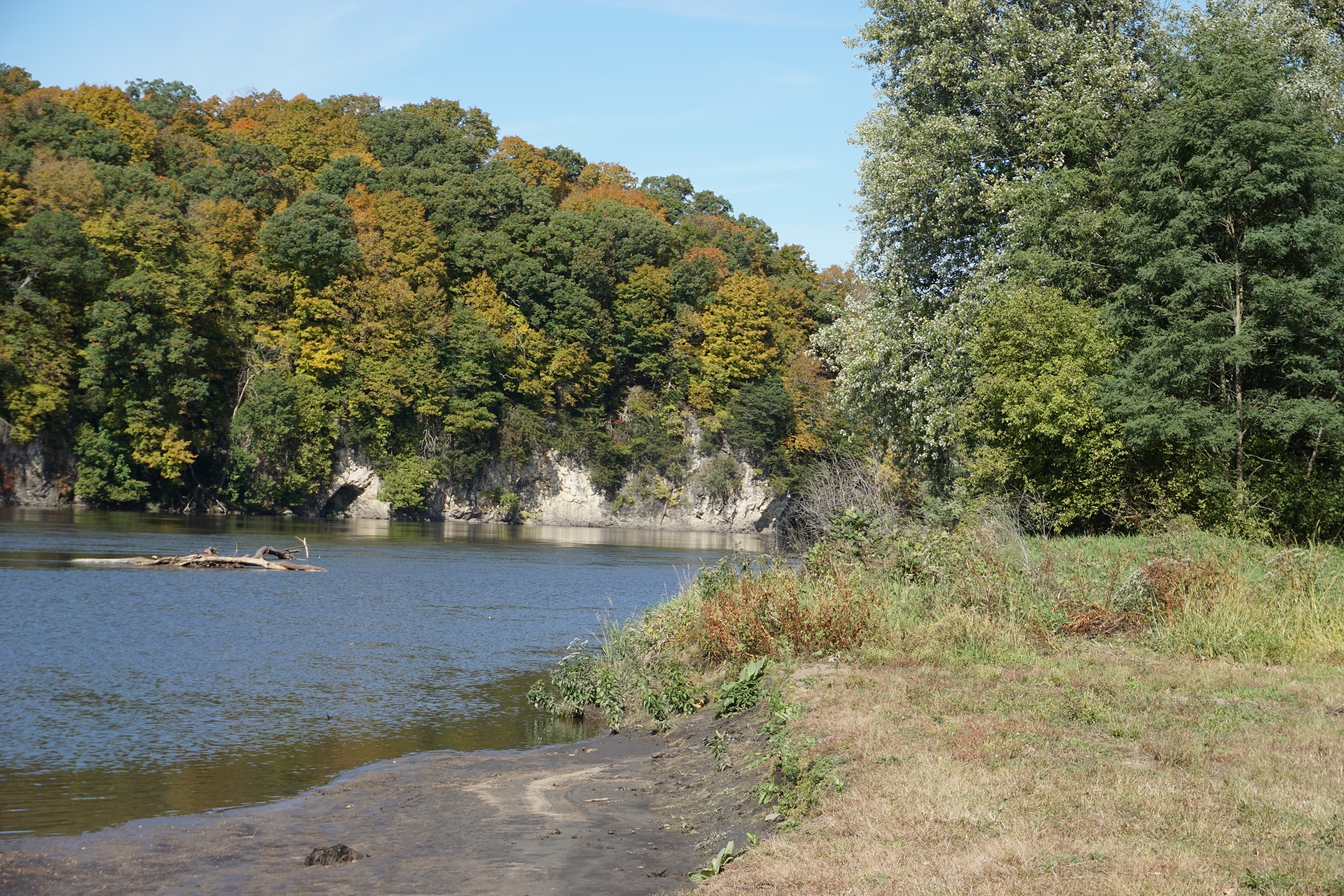
-
working on legislative issues
-
working on elections
-
fundraising
-
organizing events
-
joining an issue committee
If you would like to join a committee on the Peoples Budget, sign up here please fill out our People's Budget Volunteer Form so we can build our organizing team for this project. A large number of Sierra Club issues require some involvement with Iowa's state budget. Budgets reflect theories of government. Iowa’s political conversation rarely moves beyond the notion that government’s primary responsibility is to grow the economy. Hence we give corporations tax breaks, but slash funding for health care, environmental protections and public interest research at our three state universities. We hold a different view of government and that is government is the trustee of all the things we share - public roads and bridges, water, wildlife, air, public universities, state parks, education and public health. Therefore, protecting, enhancing and restoring our shared public wealth is the central responsibility of government. We must tie the budget to our priorities.
If you would like to join our legislative action team, sign up here. Keep on top of what is happening at the Iowa legislature. Be alerted when you should contact your legislators about pending legislation.
If you would like to join the team on a public interest research agenda, send an e-mail to iowa.chapter@sierraclub.org. The Iowa Chapter of the Sierra Club is forming a team to design a public interest research agenda, determine needed policies, and develop a strategy to implement the public research agenda. This project will be a year-long study and design group. We are especially looking for scientists who are working in climate, public health, sustainable agriculture, and related fields.
Contribute to the Iowa Chapter
Sierra Club - our best bet for achieving bold solutions to Iowa’s environmental problems
Sierra Club is Iowa’s oldest and largest grassroots environmental organization. Not only that, we are the best bet in the state for achieving bold solutions to Iowa’s environmental problems.
We work in the courts, before Iowa’s public agencies, and in the halls of the legislature. The Iowa Chapter's effort to protect the environment takes financial support. The Chapter receives very little financial support from the national Sierra Club. Can we count on you for a donation to ensure even more victories? Your contribution will be put to work here in Iowa on issues that affect every day Iowans – water quality, clean air, protection of Iowa's soil, parks and natural areas, and a strong democracy. The Iowa Chapter is relentless in fighting back bad legislation that affects every one of us.
Your non-deductible contributions make it possible for us to fight bad legislation and to promote good legislation. We appreciate your past and on-going support of these efforts. You can make a non-deductible donation with a credit card. A non-deductible donation supports the Chapter's effective, citizen-based advocacy and lobbying programs. If you prefer, a non-deductible check can be written to the Sierra Club Iowa Chapter and mailed to:
Treasurer
Sierra Club, Iowa Chapter
PO Box 1058
Marion, IA 52302
You can also make a tax-deductible donation with a credit card. Tax-deductible activities are limited to public interest education, research and legal actions. A deductible check can be written to the Sierra Club Foundation with “Iowa Chapter” written in the memo line.
Easier yet, become a monthly donor.
Thank you for your support.
Donate your used vehicle
As the Sierra Club Foundation's Iowa Chapter continues to raise charitable funds to support its work in Iowa, won’t you consider participating in our vehicle donation program? Our partners over at CARS have made the process of donating your unused or unneeded car, truck, motorcycle, boat or RV easy, efficient and secure. They’ll take care of everything from picking up your vehicle to sending you a tax receipt for your generous gift. To learn more about The Sierra Club Foundation's Iowa Chapter vehicle donation program, please call 844-674-3772. Or visit our webpage to get started today!
Sierra Club Foundation promotes climate solutions, conservation, and movement building through a powerful combination of strategic philanthropy and grassroots advocacy. The Foundation is the fiscal sponsor of Sierra Club’s charitable environmental programs.
For more information
| When | Earliest: Latest: |
| What |
|
| Word or Phrase | Word or phrase to search for: |
| Leader | All or part of leader name to search for: |
No Matching Activities Found
Loading
| Date | Activity (click title for full description) | Sponsor | Category | Type | Difficulty | Links |
|---|
Loading ...
 Outing
Outing Club support event
Club support event  Social event
Social event  Activist event
Activist event  Multiple events (map only)
Multiple events (map only)